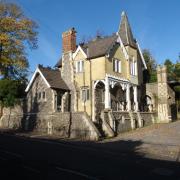With Parkinson’s Awareness Month having recently passed, we looked in to what life is like for people who are diagnosed in Hampshire
As you jumped out of bed this morning, flicked the kettle on and hopped in the shower, did you stop to think how hard your day would be if you couldn’t do those things easily? None of us do, so imagine around 127,000 people around the UK struggling to do something as simple as make a cup of tea. Every hour, someone in the UK is diagnosed with Parkinson’s, which causes muscle weakness, stiffness, tremors and slowness of movement.
Parkinson’s is described as a progressive neurological condition, which means that it is a problem with the brain which gets worse over time. In Parkinson’s the brain is damaged when cells die and as a result it cannot produce enough of an important chemical called Dopamine.
Unfortunately there is no cure, but this doesn’t mean that people die directly from having Parkinson’s. In fact, many people with Parkinson’s around the world are living a full and active life. Other symptoms include depression, tiredness and pain, which for some people can be harder to deal with than physical attributes.
The main treatment for Parkinson’s is medication to maintain the quality of life and manage the symptoms. Raising levels of Dopamine in the brain with drugs that replenish the levels, or mimic the effects, can ease many symptoms, but side effects can strike in some individuals. Deep brain stimulation may sound scary, but in many patients the surgery can provide massive relief and improvement in quality of life. Often physical therapies like physiotherapy and speech and language therapy can help immensely by enabling people with Parkinson’s to regain some strength and control.
Spot the signs
The main symptoms of Parkinson’s are tremors, slowness of movement and stiffness. Other symptoms include freezing, falls and dizziness and sleep problems. However, Parkinson’s affects everyone differently and symptoms vary from person to person. If you are concerned or would like to find out more, go to www.parkinsons.org.uk, call the free, confidential helpline at Parkinson’s UK on 0808 800 0303 or speak to your GP.
Sharon’s Story
Aldershot resident Sharon Blight, 54, found out she had Parkinson’s after some tremors in her right hand and foot were detected by an intern Physiotherapist who was treating her for a fractured collar bone. Once diagnosed by a neurologist, Sharon found the charity Parkinson’s UK and has done her bit as a fundraiser by holding coffee mornings, doing sponsored walks and organising a ‘Bowlathon’, all of which have been highly successful! Sharon tells us how Parkinson’s affects her life and how a Postive Mental Attitude gets her through the day.
“I was stunned when the consultant said ‘You have Parkinson’s’, because I thought it was only the elderly who got the shakes and tremors.
“Five years on and medication controls the tremors, but my body gets painfully stiff when still for any length of time. Bedtime is the worst because, as I sleep and my body lies still, the rigidity and stiffness locks tight and I find it hard to get out of bed to start a new day.
“A positive mental attitude helps and now it is definitely my force to overcome the powers of Parkinson’s and to challenge myself in Bowls, (my new favourite sport).”


























